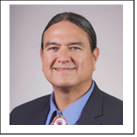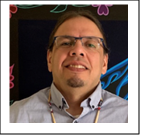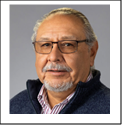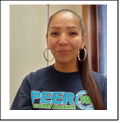Culturally-Based Approaches to Addiction & Recovery in Indigenous Communities
Dr. Donald Warne with panelists: Hunter Genia, David Garcia, & Anna Winters
Equity Upstream Lecture 3: (May 25, 2023)
This virtual lecture by Dr. Donald Warne is the third training in the Equity Upstream Spring 2023 Lecture Series that Mid-State Health Network (MSHN) developed to increase awareness and understanding of health disparities in the national overdose epidemic. The Equity Upstream initiative focuses on upstream structural issues—systemic racism, implicit bias, access barriers and others—and seeks to catalyze action to increase equity in Substance Use Disorder (SUD) services, access, quality of care and outcomes for historically underserved populations. Focusing on Indigenous Americans, social determinants of health and historical trauma that has impacted Native American health outcomes, Dr. Warne’s presentation took place on May 25, 2023, via Zoom from the Center for Indigenous Health at Johns Hopkins University in Baltimore, MD, and was followed by a panel discussion with Native American professionals in Michigan, David Garcia (American Indian Health & Family Services), Hunter Genia (former Behavioral Health Director, Saginaw Chippewa Tribe) and Anna Winters (Peer 360 Recovery Alliance).



David Garcia, LMSW ACSW, is Behavioral Health Director & Cultural Services Coordinator at American Indian Health & Family Services (AIHFS) in Detroit. He is of Native American and Mexican American heritage. His father is from the Lipan Apache Tribe of Southern Texas. His mother is from Mexico and would be related to the Tarahumara Tribe of Copper Canyon, Mexico. He has his bachelor’s and master’s in social work from Michigan State University. His journey on the Red Road began in June of 1994 and he practices the Lakota Teachings of Spirituality. He has been privileged to have participated in teachings and ceremonies with Elders from the Dakotas, Minnesota, Texas, Canada, Central America, the Andes and the Amazon. He is a Fire Keeper, a Carrier of the Chanupa (sacred pipe), and Sundance Leader. David has received ceremonial teachings and is able to perform the Inipi (sweat lodge) ceremony and Hanblecheya (vision quest) ceremony. Dave grew up in a Mexican community in Saginaw until he was 5 when his family moved to rural Chesaning (Ojibway for big rock). Dave has over 28 years of sobriety and believes that through indigenous teachings and ceremonies, we can help heal the indigenous people and Mother Earth. He feels that these teachings and ceremonies can help all the people of Maka (mother earth) Dave’s idea of a vacation is to travel and spend a week with an elder participating in ceremony. Aho Mitakuye Oyasin (All My relations).

Other Lectures in the Series
Camara Jones, MD, MPH, PhD – When Systems Damage People: Anti-Racism Lessons for Battling the Opioid Epidemic (2022-2023 Leverhulme Professor in Global Health & Social Medicine, King's College, London)
Haner Hernandez, PhD, CPS, CADCII, LADCI – Building Health Equity: A Social Justice Approach to the Opioid Epidemic in Hispanic/Latiné Communities (Master Trainer, Addiction Technology Transfer Center) & panelists: Dr. Isabel Montemayor-Vazquez, Feliz Rodriguez, & José Salinas
Larke Huang, PhD – Racial & Ethnic Disparities in the Opioid Crisis: A Perspective from SAMHSA’s Office of Behavioral Health Equity (Director, Office of Behavioral Health Equity, SAMHSA) & panelists: Dr. Allison Lin & Dr. Lara Coughlin (UofM’s Dept of Psychiatry & Addiction Medicine)
